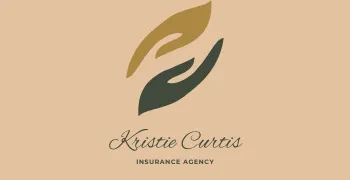
Understanding Term Life Insurance: A Comprehensive Guide
Understanding Term Life Insurance: A Comprehensive Guide
What is Term Life Insurance?
Term life insurance is a type of life insurance that provides coverage for a specified period or "term." If the insured person dies within this term, the policy pays a death benefit to the designated beneficiaries. Unlike permanent life insurance, term life insurance does not build cash value over time. It is purely a risk protection tool, designed to offer financial security during specific periods when the policyholder needs it most. Set An Insurance Discovery Call Now
How Does Term Life Insurance Work?
Selection of Term Length: Policyholders choose a term length, typically ranging from 10 to 30 years. Common choices are 10, 15, 20, and 30 years.
Payment of Premiums: The policyholder pays regular premiums, usually monthly or annually, to maintain coverage. These premiums are typically fixed for the term duration.
Death Benefit: If the insured dies within the term, the beneficiaries receive a death benefit, which is a predetermined amount set at the time the policy is purchased.
Policy Expiry: If the term ends and the insured is still alive, the coverage expires. The policyholder can either let the policy lapse, renew it (often at a higher premium), or convert it to a permanent life insurance policy if the policy allows.
Types of Term Life Insurance
Level Term Life Insurance: The death benefit and premium remain the same throughout the term.
Decreasing Term Life Insurance: The death benefit decreases over the policy's life, while the premium typically remains constant. This type is often used to cover debts that decrease over time, such as a mortgage.
Renewable Term Life Insurance: Allows the policyholder to renew the policy after the term ends without undergoing a medical examination, though premiums may increase.
Convertible Term Life Insurance: Provides the option to convert the term policy into a permanent life insurance policy without a medical exam, usually up to a certain age or time limit.
Advantages of Term Life Insurance
Affordability: Generally more affordable than permanent life insurance, making it accessible to a wider range of people.
Simplicity: Straightforward in structure, with clear terms and conditions.
Flexibility: Various term lengths and policy types allow customization to meet specific financial goals and needs.
High Coverage Amounts: Typically allows for higher death benefits for a given premium compared to permanent life insurance.
Disadvantages of Term Life Insurance
Temporary Coverage: Coverage is limited to the term length, and if the policy expires, there is no payout or value.
No Cash Value: Unlike permanent life insurance, term policies do not accumulate cash value that can be borrowed against or withdrawn.
Increasing Costs: Renewing a term policy can be costly, especially as the policyholder ages or if their health deteriorates.
Who Should Consider Term Life Insurance?
Young Families: To provide financial security in the event of an untimely death of a breadwinner.
Homeowners: To cover mortgage debts and ensure the family can stay in their home.
Business Owners: To protect against the financial impact of losing a key employee or partner.
Individuals with Dependents: To ensure dependents are financially supported for a specific period, such as until children graduate from college.
How to Choose the Right Term Life Insurance Policy
Assess Coverage Needs: Determine the amount of coverage needed to support beneficiaries in case of your death. Consider debts, future expenses, and income replacement.
Select an Appropriate Term: Choose a term length that aligns with your financial obligations and goals. For example, match the term to the length of a mortgage or the time until your children are financially independent.
Compare Premiums: Shop around and compare premiums from different insurers. Ensure you understand what each policy covers and any additional features.
Check Insurer's Reputation: Research the financial stability and customer service reputation of potential insurers.
Conclusion
Term life insurance offers a practical, cost-effective way to ensure financial security for your loved ones during critical periods. By understanding its features, benefits, and limitations, you can make informed decisions to protect your family's financial future. Whether you are looking to cover a mortgage, support your children's education, or safeguard your business, term life insurance provides a tailored solution to meet your needs.
Frequently Asked Questions
1. Can I cancel my term life insurance policy at any time?
Yes, you can typically cancel your term life insurance policy at any time, but you will forfeit any premiums paid.2. Can I extend my term life insurance coverage?
You can usually renew or extend your coverage, but the premiums may increase. Some policies also offer a conversion option to permanent insurance.3. What happens if I outlive my term life insurance policy?
If you outlive your policy, the coverage ends, and there is no death benefit or cash value. You may renew or purchase a new policy if needed.4. Are term life insurance premiums tax-deductible?
In most cases, life insurance premiums are not tax-deductible. However, the death benefit is typically tax-free for beneficiaries.5. How do I determine the right amount of coverage?
Consider factors such as outstanding debts, future financial needs, and income replacement when determining the coverage amount. Consulting with a financial advisor can also help in making this decision.
Frequently Asked Questions
Common Questions Answered for your convenience.
1. What exactly is Medicare and who gets to use it?
Medicare is a federal health insurance program in the United States for people that are age 65 or older and younger people with disabilities, including those with end stage renal disease and amyotrophic lateral sclerosis (Lou Gehrig's disease).
Can you explain the different parts of Medicare like A, B, C, and D?
Part A - Hospital Insurance Part B - Medical Insurance Part C - Medicare Advantage Plan Part D - Drug Coverage
How do I know if I'm eligible for Medicare when I turn 65?
Check with human resources if you are still working.
Contact the Social Security Administration.
Schedule An Appointment with me now!
Check with human resources if you are still working. Contact the Social Security Administration. Schedule An Appointment with me now!
What's included in Medicare Advantage plans that's not in Original Medicare?
Additional benefits such as vision, dental, etc.
Are there any resources that can help me compare different Medicare Advantage plans?
Schedule an appointment online with an agent now. Click the link on this page now.
Can you switch from Original Medicare to a Medicare Advantage plan anytime?
No, There are certain times of the year that you are able to switch between plans. Check with a licensed insurance agent for the appropriate times.
